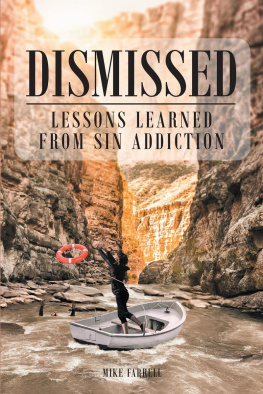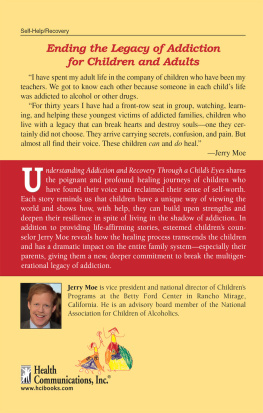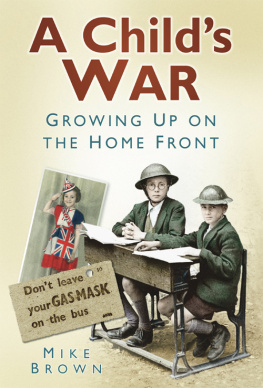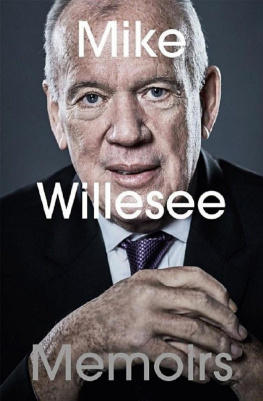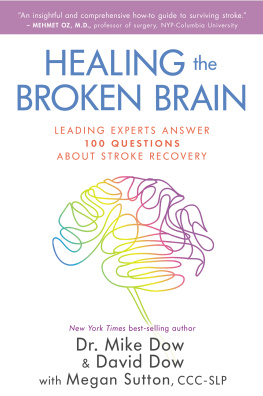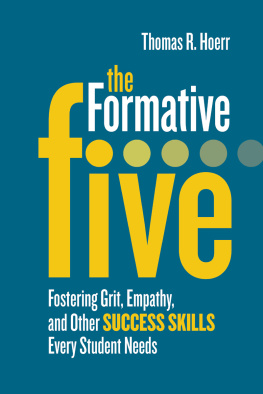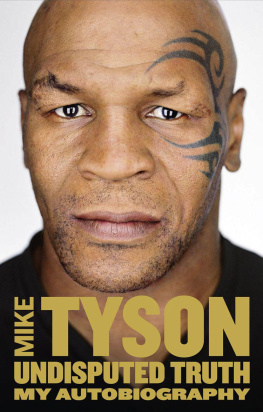Delivering Recovery
Series edited by Patrick Tomlinson, Director of Practice Development, SACCS
This is an essential series on practice for all professionals and parents involved in providing recovery for traumatized children and young people. Each book offers a practical and insightful introduction to an aspect of SACCS unique and integrated approach to children traumatized by sexual, physical and emotional abuse.
also in the series
A Childs Journey to Recovery
Assessment and Planning with Traumatized Children
Patrick Tomlinson and Terry Philpot
Foreword by Mary Walsh, co-founder and Chief Executive of SACCS
ISBN 978 1 84310 330 1
eISBN 978 1 84642 740 4
The Childs Own Story
Life Story Work with Traumatized Children
Richard Rose and Terry Philpot
Foreword by Mary Walsh, co-founder and Chief Executive of SACCS
ISBN 978 1 84310 287 8
eISBN 978 1 84642 056 6
Living Alongside a Childs Recovery
Therapeutic Parenting with Traumatized Children
Billy Pughe and Terry Philpot
Foreword by Mary Walsh, co-founder and Chief Executive of SACCS
ISBN 978 1 84310 328 8
eISBN 978 1 84642 581 3
Reaching the Vulnerable Child
Therapy with Traumatized Children
Janie Rymaszewska and Terry Philpot
Foreword by Mary Walsh, co-founder and Chief Executive of SACCS
ISBN 978 1 84310 329 5
eISBN 978 1 84642 463 2
Fostering a Childs Recovery
Family Placement for Traumatized Children
Mike Thomas and Terry Philpot
Foreword by Mary Walsh
Jessica Kingsley Publishers
London and Philadelphia
First published in 2009
by Jessica Kingsley Publishers
73 Collier Street
London N1 9BE, UK
and
400 Market Street, Suite 400
Philadelphia, PA 19106, USA
www.jkp.com
Copyright SACCS 2009
Foreword copyright Mary Walsh 2009
All rights reserved. No part of this publication may be reproduced in any material form (including photocopying or storing it in any medium by electronic means and whether or not transiently or incidentally to some other use of this publication) without the written permission of the copyright owner except in accordance with the provisions of the Copyright, Designs and Patents Act 1988 or under the terms of a licence issued by the Copyright Licensing Agency Ltd, Saffron House, 610 Kirby Street, London EC1N 8TS. Applications for the copyright owners written permission to reproduce any part of this publication should be addressed to the publisher.
Warning: The doing of an unauthorised act in relation to a copyright work may result in both a civil claim for damages and criminal prosecution.
Library of Congress Cataloging in Publication Data
Thomas, Mike, 1955-
Fostering a childs recovery: family placement for traumatized children / Mike Thomas and Terry Philpot; foreword by Mary Walsh.
p.; cm. -- (Delivering recovery)
Includes bibliographical references and indexes.
ISBN 978-1-84310-327-1 (pb : alk. paper) 1. Abused children--Rehabilitation. 2. Abused children--Services for. 3. Therapeutic foster care. I. Philpot, Terry. II. Title. III. Series.
[DNLM: 1. Child Abuse--therapy. 2. Stress Disorders, Post-Traumatic--therapy. 3. Child. 4. Foster Home Care--psychology. WS 350 T459f 2009]
RJ507.A29T46 2009
362.768--dc22
2008037529
British Library Cataloguing in Publication Data
A CIP catalogue record for this book is available from the British Library
ISBN 978 1 84310 327 1
eISBN 978 1 84642 687 2
To my wife Christine and all our children for their love and inspiration and the many insights they have given me.
Mike Thomas
To Mary for the courage to try and make a difference.
Terry Philpot
A Note and Acknowledgements
This book follows the style of the others in the series whereby a child is referred to as she and adults as he other than in specific cases. However, occasionally, in this book, foster carers have been referred to as she partly because the majority of foster carers are women and in the circumstances it would read strangely to use the male pronoun even when we are writing generally. Names of children and foster carers have been changed.
The authors would like to thank Roger Bullock, a fellow of the Centre for Social Policy, Warren House Group at Dartington, University of Bristol, for turning up some references regarding fostering and residential care and Andrew Hug, then policy officer at Fostering Network, for useful information on fees and allowances. Rebecca Fowler, graduate policy researcher at Barnardos, supplied statistics that the Department for Children, Families and Schools website makes peculiarly inaccessible. Ian Sinclair, professor emeritus, York University, elucidated some points about an elusive reference. The SACCS family placement team provided case examples and Dawn Foulkes showed her forbearance in the face of a mountain of paperwork. As before, Steve Jones, commissioning editor, Jessica Kingsley Publishers, gave help and advice.
Foreword
In The World of Children, Storr (quoted in Buscaglia 1982) writes
How ignominious to be a child. To be so small that you can be picked up, to be moved about at the whim of others. To be fed or not fed. To be cleaned or to be left dirty. Made happy or left to cry. Its surely so ultimate an indignity that its not surprising that some of us never really recover from it. For it is surely one of the basic fears of personkind that we should be treated as things and not as persons. Manipulated, pushed around by impersonal forces, treated as of no account by the powerful and more superior. Each one of us may be a tiny atom in an enormous universe, but we need the illusion that we count that our individuality demands attention. To be able to be totally disregarded as a person is a kind of death in life against which we have to fight with all our strength.
Children traumatized by serious abuse or profound neglect have suffered harm to their person, their innocence, their emotional and their spiritual well-being, and the right to grow up in their own families. Because these injuries are so profound they affect both their external and internal worlds. Through no fault of their own they have been injured by one, or both, of the most important and powerful people in their lives, their parents. For these children, families are dangerous places where they may be hurt, used sexually or just ignored, and somehow they think it is their fault. It is not surprising, therefore, that when placed in another family they will often act out their beliefs in a frightening and destructive way both for themselves and their alternative family and another rejection will result.
In the next placement the child will test the family even more, and a negative cycle of failed placements begins. Fearful and adrift in the foster care system, every move confirms for the child that the world is a cruel place where you have to fight to survive, and avoid being vulnerable at all costs.
I didnt fully realize the impact of these dynamics until in the early days of SACCS we were visiting children to help them to communicate their distress at what had happened to them. Usually they had been placed with foster carers who had not been trained, prepared or supported in the complex task they had been given. Often the children were still very young, and because of what had happened to them their behaviour was either highly eroticized, or very disturbed. What I saw was carers unable to cope, particularly with the sexualized behaviour and their own sexual feelings about it; the placement broke down and the reason given was always something different. Because the real problem was not identified, the child would be placed in yet another foster home and the same thing happened again and again. The child, re-traumatized by each breakdown, would eventually be placed in residential care often alongside troubled adolescents who were acting out their own difficulties.




